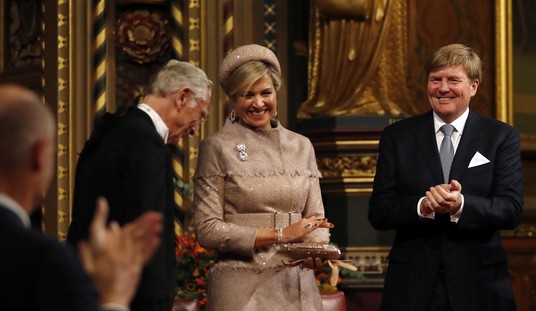As Ed reported yesterday, Catalonia took the final step of formally declaring their independence on Friday. This led to all sorts of cheering in the streets of that region of Spain, but the jubilation is likely to be short-lived. Less than 24 hours later, Spanish Prime Minister Rajoy was given permission by the legislature to invoke a rare constitutional measure and dissolve the government of the autonomous region and discharge all of their elected leaders. (Associated Press)
Spain took formal direct control of Catalonia on Saturday, on paper firing the region’s defiant separatist government a day after lawmakers passed a declaration of independence for the prosperous northeastern region.
But there was no immediate sign if top Catalan officials were intending to obey or if they would resist the sacking and throw the region into further turmoil by prolonging a monthlong standoff with central authorities.
The move came after one of the most tumultuous days in the country’s recent history, as the national parliament in Madrid approved unprecedented constitutional measures to halt the secessionist drive by the regional parliament in Barcelona.
If Catalan President Carles Puigdemont was expecting any help from outside forces he’s going to be very disappointed. Just since yesterday there has been a parade of western nations lining up to signal their support for the government in Madrid and a unified Spain. And one of the first out of the gate was the State Department of the United States. (Reuters)
The U.S. State Department, reacting to Spanish efforts to block a Catalan independence bid, said on Friday that Catalonia is an integral part of Spain and Washington backs Madrid’s efforts to keep the country united.
“Catalonia is an integral part of Spain, and the United States supports the Spanish government’s constitutional measures to keep Spain strong and united,” State Department spokeswoman Heather Nauert said in a statement.
The United States was far from the only nation weighing in on Rajoy’s side. Britain almost immediately declared that they weren’t going to recognize an independent Catalonian state. France issued a similar statement, followed by Germany. Even NATO took a quick vote and declared that there was only one Spain and Catalonia is part of it.
There are a couple of countries who no doubt enjoy seeing this happen. Russia, in particular, doesn’t mind seeing any sort of unrest in the European Union and I’m sure China isn’t shedding any tears over this either. But neither of them actually needs to do anything at this point but sit back and take in the show. Even issuing a statement of support for Catalonia would be seen as interfering in Spain’s internal politics and distract from the issue, so they’re likely going to hold their tongues and let the Spanish sort things out for themselves.
It’s the sorting out process that we need to watch out for next. So far everything that’s happened has been on paper, but soon there will need to be authority asserted on one side or the other. While Rajoy has called for snap elections to select new regional leaders, Puigdemont could be on his way to setting up a formal, independent government. Who will the local police and regional military back in this case? If Catalonia can’t command any sort of armed support then this could be over very quickly. If they can, Spain could be looking at a military conflict inside its own borders which would be disastrous for them.
But even if the local law enforcement units don’t back Puigdemont, Rajoy may have to call in the military to tamp down any street protests which get out of hand. If they get too aggressive in that regard and protesters wind up being bloodied in the streets, that’s going to generate a lot more resistance from the locals and sympathy for the Catalonians abroad. Spain needs to come up with some sort of peaceful resolution to this mess in the coming weeks but that may prove easier said than done.








Join the conversation as a VIP Member